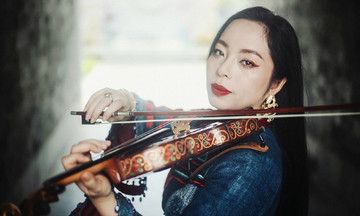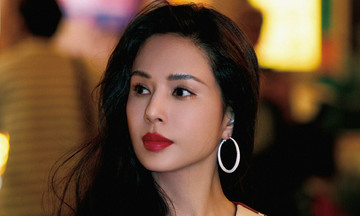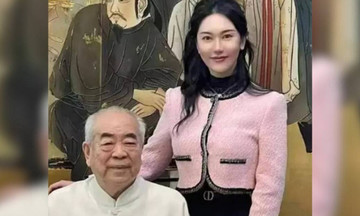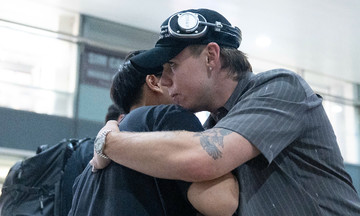Eighty years ago on this day, heeding the call of the Viet Minh Front, the people of Hanoi took to the streets, converging on the Grand Opera House for a rally. The capital was awash with red and gold starred flags. The rally transformed into an armed demonstration, seizing the Governor-General's Palace, the security forces barracks, and other facilities of the puppet government.
Composer Do Xuan Oanh, then 23, led the march from the Giap Bat railway station area to the Grand Opera House. At the head of the procession, he felt the energy and fervor of each step. The melody and first words of the song emerged: "All Vietnamese people stand together, contributing their strength for one day/ Vowing to shed blood and fight wholeheartedly for the future," he sang.
As he composed, he taught the marchers the song, their voices joining the rhythm of their footsteps. By the time they reached Cho Mo (Hai Ba Trung, Hanoi), the 10-verse song was complete, titled after the historic day. Oanh led the singing as they marched to the Grand Opera House. Other groups converged, joining the flow of people, singing revolutionary songs like "Tien Quan Ca," "Diet Phat Xit," "Co Viet Minh," and concluding with "August Nineteenth."
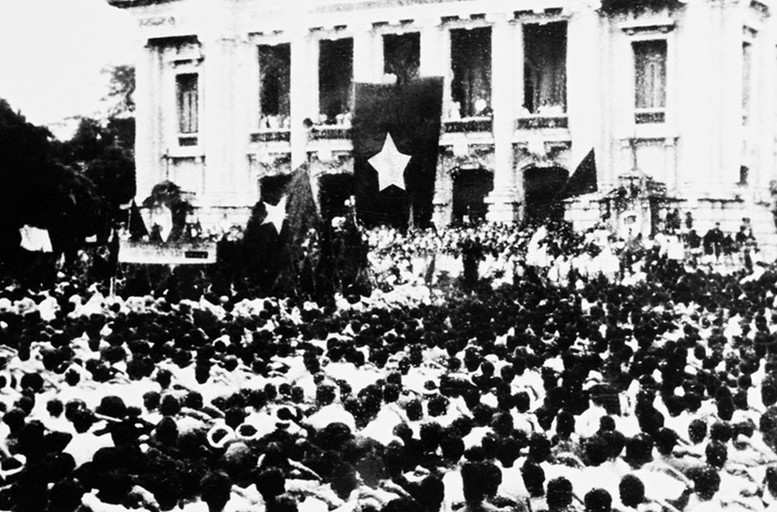 |
The rally at the Grand Opera House on 19/8/1945. Photo: Archive |
According to the book "Do Xuan Oanh - The Oanh Bird of the Revolutionary Spring," from late 1943 to 1944, while actively involved in clandestine propaganda for the Viet Minh Front in preparation for the General Uprising in Hanoi, the composer had been contemplating a song about this event.
These feelings were compounded by memories of his difficult childhood and the impact of war on his family. His grandfather, a scholar of the Dong Kinh Nghia Thuc movement, was persecuted by the colonial authorities, forcing him to leave his homeland and scattering the family. His sister, the most beautiful girl in the region at the time, was taken by a French officer, tortured to death, and her body returned to the family. Due to poverty, Xuan Oanh only completed 4 years of schooling. He then worked as a foundry worker, a miner, and later as a tutor in Hai Phong. It was through singing that he met composers Van Cao and Nguyen Dinh Thi and became involved in the revolution. All the resentment, hardship, and difficulty from his childhood, combined with the revolutionary fire burning within him, erupted into melody.
The short, rapid verses echoed the marching footsteps, the "cries of resentment" becoming a unifying force, urging everyone to "rise up" and break the chains of slavery. The procession marched under the "light of freedom," with "flags flying everywhere." The song concludes with a reminder: "August Nineteenth, do not forget the day of the uprising/ Happiness illuminates the land of Vietnam," expressing optimism and faith in the country's future.
The composer "had a knack for composing on the spot, but if he didn't write it down immediately, he'd forget it." On the afternoon of 19/8, after the successful seizure of power in Hanoi, he transcribed the march onto a cigarette pack and took it to a friend's printing shop. The song was engraved on woodblocks and printed like leaflets, distributed throughout Hanoi. His family says the woodblocks have been lost. He kept a copy printed on coarse yellow A4 paper with a red and gold starred flag at the top, but this too was lost during the war.
Despite this, the work remains etched in the hearts of Vietnamese people across generations, marking the day the country turned a new page in its history. Poet Nguyen Thuy Kha described it as "a sudden and powerful melodic explosion at the moment of an uprising that seized power in Hanoi."
Every year, during the anniversary of the August Revolution, the song resonates, transporting listeners back to the heroic atmosphere of that era. At the "Hanoi - From the Historic Autumn of 1945" program on 15/8, artists brought hundreds of flags onto the stage, recreating the moment of "flags flying everywhere, a myriad of gold stars."
On 10/8, at the "To Quoc Trong Tim" concert, Meritorious Artist Dang Duong and singer Tung Duong performed a medley of "August Nineteenth," "Doan Ve Quoc Quan," and "Duong Chung Ta Di," with tens of thousands of audience members singing along. The song's simple lyrics and catchy melody have made it popular with younger generations.
In "Do Xuan Oanh - The Oanh Bird of the Revolutionary Spring," Associate Professor Do Le Chau, the composer's son, said his father always considered himself fortunate "to be chosen by history to record, through music, the earth-shattering revolutionary atmosphere of the Vietnamese people on the day of the General Uprising that brought power to the people." According to his family, during his lifetime, every 19/8, the composer received numerous interview requests from newspapers asking about the song's origins, "it was a chance for him to relive that historic day."
For Do Anh Thu, the composer's granddaughter, "August Nineteenth" is a family song. "As a child, I didn't understand the lyrics, but knowing it was composed by my grandfather made me proud. Every year on 19/8, our family gathers. Even though he's gone, these days still hold sacred meaning. We still sit together and listen to the song."
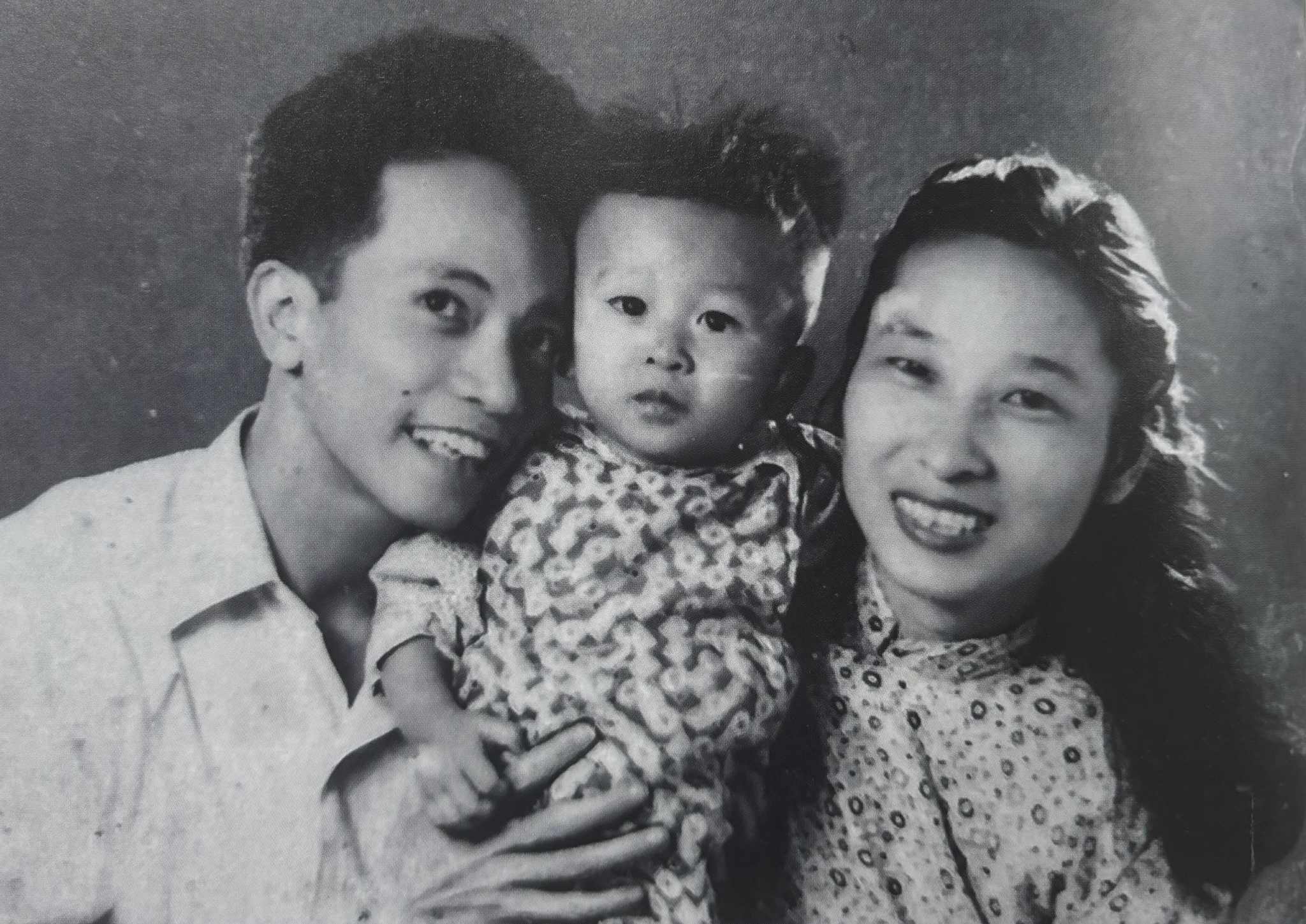 |
Composer Xuan Oanh with his wife (Xuan Uyen) and their first son, Do Le Chau, in 1957. Photo: "Do Xuan Oanh - The Oanh Bird of the Revolutionary Spring" |
Composer Do Xuan Oanh, born in 1923 and died in 2010, hailed from Quang Yen, Quang Ninh. He was a cultural diplomat and musician. Before 1945, he participated in propaganda for the Viet Minh Front. After the August Revolution, he went to the Viet Bac resistance base and worked for the Cuu Quoc newspaper. He was one of the first English-language broadcasters for the Voice of Vietnam and an interpreter for high-ranking Party and State leaders. For many years, he served as the General Secretary of the Vietnam Peace Committee, participating in the Paris Peace Accords and other historical events.
He also wrote songs like "Ho Chi Minh - Nguoi La Muon Anh Sao" and "Que Huong Anh Bo Doi." He received the Third-Class Independence Order in 1998 and the State Prize for Literature and Arts in 2009.
Chau Anh






